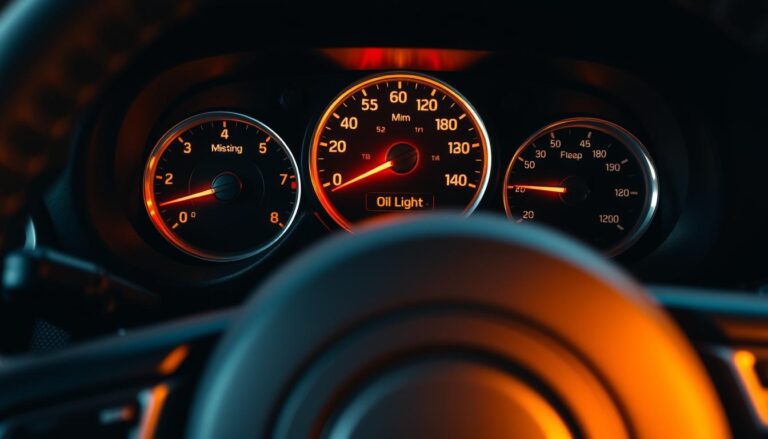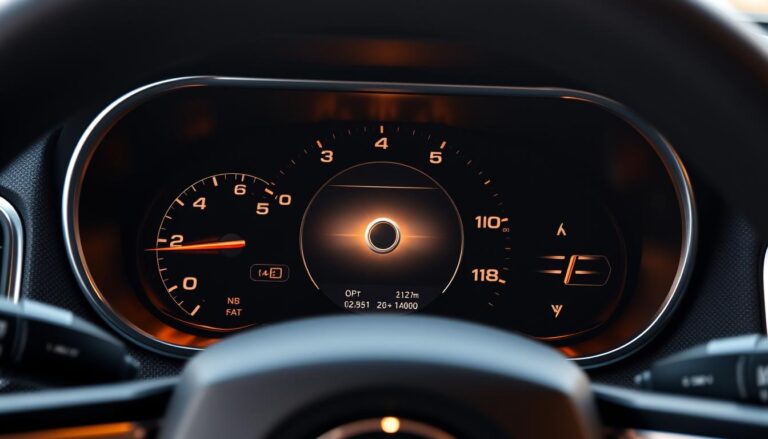The Jeep Grand Cherokee has earned its reputation as a versatile SUV that combines off-road capability with everyday comfort. However, not all model years deliver the reliability that buyers expect. If you’re in the market for a used Grand Cherokee, knowing which years to avoid can save you thousands in repair costs and countless headaches.
This comprehensive guide identifies the most problematic Jeep Grand Cherokee model years and explains exactly why they should be approached with caution.
Understanding the Jeep Grand Cherokee Generations
Since its introduction in 1992, the Jeep Grand Cherokee has evolved through five distinct generations. Each generation brought improvements in technology, comfort, and performance, but some model years within these generations have proven significantly less reliable than others.
| Generation | Model Years | Key Features | Overall Reliability |
| First (ZJ) | 1993-1998 | Solid axles, 4.0L I6 engine, basic 4WD systems | Generally reliable, especially later years |
| Second (WJ) | 1999-2004 | Improved interior, Quadra-Drive system | Good reliability with some exceptions |
| Third (WK) | 2005-2010 | Independent front suspension, HEMI V8 option | Mixed reliability |
| Fourth (WK2) | 2011-2021 | Air suspension, advanced tech features | Early years problematic |
| Fifth (WL) | 2022-present | New platform, plug-in hybrid option | Too early to determine |
While many Grand Cherokee model years offer reliable performance, several specific years stand out for their recurring issues and high repair costs. Let’s examine the most problematic years in detail.
Jeep Grand Cherokee Years to Avoid
Based on NHTSA complaints, consumer reports, and documented mechanical issues, these are the Jeep Grand Cherokee model years with the most significant problems:

2011 Jeep Grand Cherokee: The Most Problematic Year
The 2011 model year marks the beginning of the fourth generation (WK2) and unfortunately suffers from the “first model year syndrome.” With 755 NHTSA complaints, it stands as the most problematic Grand Cherokee year to date.
Major Issues with the 2011 Model
- TIPM Failure: The Totally Integrated Power Module frequently fails, causing electrical system malfunctions, stalling, and starting problems.
- Electrical System: Widespread electrical issues affecting everything from dashboard displays to power windows.
- Engine Problems: Unexpected stalling while driving, creating dangerous situations.
- Transmission Issues: Rough shifting, hesitation, and premature transmission failure.
- Multiple Recalls: Subject to numerous safety recalls, indicating systemic quality issues.
The 2011 Grand Cherokee’s electrical issues were so widespread that they resulted in a class-action lawsuit. Repair costs for the TIPM alone can exceed $1,000, not including diagnostic fees and related repairs.

2014 Jeep Grand Cherokee: Transmission Nightmares
With 499 NHTSA complaints, the 2014 model year ranks second in problematic Grand Cherokee years. Despite being several years into the fourth generation, this model continued to suffer from significant issues.
Major Issues with the 2014 Model
- Transmission Problems: Notorious for shifting issues, including jerky transitions, hesitation, and complete transmission failure.
- Infotainment Glitches: Frequent freezing, unresponsive touchscreens, and connectivity problems.
- Alternator Failure: Premature alternator failure leading to battery drainage and unexpected shutdowns.
- Interior Quality: Reports of dashboard leather bubbling and deteriorating materials.
- High Recall Count: Subject to numerous safety recalls throughout its production.
Transmission repairs for the 2014 Grand Cherokee can cost between $3,000 and $5,000, making it one of the most expensive common issues to fix. Many owners report problems occurring shortly after the warranty period ends.
2012-2013 Jeep Grand Cherokee: Continuing Problems
The 2012 and 2013 model years, while slightly improved over the 2011 version, still experienced significant issues that make them years to approach with caution.
2012 Model Issues (303 NHTSA complaints)
- Persistent TIPM electrical problems
- Engine stalling issues
- Power system failures
- Transmission shifting problems
2013 Model Issues (101 NHTSA complaints)
- Electrical system malfunctions
- Interior material quality issues
- Transmission hesitation
- Reduced complaint volume but similar problem types

2015 Jeep Grand Cherokee: Lingering Concerns
While showing some improvement over earlier fourth-generation models, the 2015 Grand Cherokee still experienced enough issues to warrant caution from potential buyers.
- Continued Electrical Problems: Though less frequent than in earlier models, electrical issues persisted.
- Transmission Concerns: Shifting problems and hesitation continued to affect some vehicles.
- Infotainment System Glitches: Screen freezing and connectivity issues remained common complaints.
- Suspension Problems: Some owners reported premature wear of suspension components.
The 2015 model showed improvement over earlier fourth-generation vehicles but still carried enough of the same issues to make it a questionable purchase, especially at higher mileages.
The Financial Impact: Repair Costs for Problematic Models
Owning a problematic Jeep Grand Cherokee model can lead to significant financial burden. Here’s what owners can expect to pay for common repairs:
| Common Repair | Estimated Cost Range | Most Affected Years |
| TIPM Replacement | $1,000 – $1,600 | 2011-2013 |
| Transmission Replacement | $3,000 – $5,000 | 2014-2015 |
| Alternator Replacement | $600 – $900 | 2011-2014 |
| Fuel Pump Replacement | $1,054 – $1,231 | 2011-2013 |
| Heater Core Replacement | $1,017 – $1,253 | 2011-2015 |
| Suspension Repairs | $600 – $2,852 | 2014-2015 |
The average annual maintenance cost for a Jeep Grand Cherokee is approximately $666, which is higher than many competitors in the same segment. However, problematic model years can easily exceed this amount several times over.

Best Jeep Grand Cherokee Years to Consider
Not all Jeep Grand Cherokee model years should be avoided. Several years stand out for their reliability and represent better value for used car shoppers:

1998 Jeep Grand Cherokee
The final year of the first generation (ZJ) is known for its rugged durability and simple, reliable design. The 4.0L inline-six engine is legendary for its longevity.
- Durable 4.0L I6 engine
- Simple, easy-to-maintain design
- Solid axles for off-road capability
- Few reported issues
2003 Jeep Grand Cherokee
A standout from the second generation (WJ), offering a good balance of capability and comfort with fewer reliability concerns than other years.
- Reliable 4.0L I6 or 4.7L V8 engines
- Improved interior quality
- Quadra-Drive system for off-road use
- Lower complaint volume
2017-2019 Jeep Grand Cherokee
Later fourth-generation models benefited from refinements that addressed many earlier issues, making them more reliable choices.
- Improved transmission programming
- Updated electrical systems
- Modern safety features
- Better infotainment reliability
These model years generally offer better reliability and lower long-term ownership costs. The 2017-2019 models, in particular, provide a good balance of modern features and improved reliability over the earlier fourth-generation vehicles.
Alternative SUVs to Consider
If you’re concerned about Jeep Grand Cherokee reliability but still want a capable SUV, consider these alternatives that offer similar features with better reliability ratings:

Toyota 4Runner
Known for exceptional reliability and strong resale value, the 4Runner offers similar off-road capability with fewer long-term issues.
- Excellent reliability ratings
- Strong off-road capability
- Lower maintenance costs
- Exceptional longevity
Ford Explorer
A popular alternative with more modern features and better on-road comfort, though with less off-road capability than the Grand Cherokee.
- More refined on-road experience
- Better fuel economy options
- Modern tech features
- Improved reliability in recent years
Honda Passport
A newer entry in the mid-size SUV segment with Honda’s reputation for reliability and a good balance of on and off-road capability.
- Strong reliability ratings
- Comfortable interior
- Decent off-road capability
- Lower ownership costs
Smart Shopping Tips for Used Jeep Grand Cherokee Buyers
If you’re still set on purchasing a Jeep Grand Cherokee despite the potential issues with certain model years, follow these tips to minimize your risk:

- Get a Pre-Purchase Inspection: Always have a trusted mechanic inspect any used Grand Cherokee before purchase, especially for the problematic model years.
- Check for Recall Completion: Verify that all safety recalls have been addressed by checking the VIN with Jeep or the NHTSA.
- Review Service Records: Look for consistent maintenance and prompt repairs, which indicate a responsible previous owner.
- Test Drive Thoroughly: Pay special attention to transmission shifting, electrical functions, and engine performance.
- Consider an Extended Warranty: For problematic years, an extended warranty can provide peace of mind, though it adds to your purchase cost.
- Check for TIPM Replacement: For 2011-2013 models, ask if the TIPM has been replaced with an updated version.
- Research the Specific VIN: Use services like Carfax or AutoCheck to review the vehicle’s history for accidents, flood damage, or recurring issues.
Frequently Asked Questions
Is a 2014 Jeep Grand Cherokee reliable?
The 2014 Jeep Grand Cherokee is generally not considered reliable compared to other model years. With 499 NHTSA complaints, it ranks as the second most problematic year, primarily due to transmission issues, electrical problems, and infotainment system glitches. If considering a 2014 model, budget for potential repairs and get a thorough pre-purchase inspection.
What is the most reliable Jeep Grand Cherokee year?
The 1998, 2003, and 2017-2019 model years are generally considered the most reliable Jeep Grand Cherokee years. The 1998 model (last year of first generation) features the durable 4.0L inline-six engine, while the 2003 model offers a good balance of capability and reliability. The 2017-2019 models benefit from refinements that addressed many issues present in earlier fourth-generation vehicles.
How many miles will a Jeep Grand Cherokee last?
A well-maintained Jeep Grand Cherokee from a reliable model year can last 200,000+ miles. However, problematic years like 2011-2015 may require significant repairs before reaching this milestone. Regular maintenance is crucial for longevity, including oil changes, transmission service, and addressing issues promptly before they escalate.
Are Jeep Grand Cherokees expensive to maintain?
Yes, Jeep Grand Cherokees tend to have higher-than-average maintenance costs. The average annual maintenance cost is approximately 6, which exceeds many competitors in the same segment. Problematic model years (2011-2015) can be significantly more expensive to maintain due to transmission issues, electrical problems, and other recurring failures.
Should I buy a used Jeep Grand Cherokee?
A used Jeep Grand Cherokee can be a good purchase if you select a reliable model year and ensure it has been well-maintained. Avoid the problematic years (especially 2011 and 2014) and always get a pre-purchase inspection. Consider models from 1998, 2003, or 2017-2019 for better reliability. If off-road capability is less important, also consider alternatives like the Toyota 4Runner for better long-term reliability.
Protect Your Jeep Grand Cherokee Investment
Concerned about potential repair costs for your Jeep Grand Cherokee? An extended warranty can provide peace of mind and protection against unexpected expenses, especially for models with known reliability issues.
Conclusion: Making an Informed Decision
The Jeep Grand Cherokee offers impressive capability, comfort, and style, but choosing the right model year is crucial for a positive ownership experience. By avoiding the most problematic years—particularly 2011 and 2014—and focusing on more reliable options like the 1998, 2003, or 2017-2019 models, you can enjoy the benefits of this popular SUV without the headaches of frequent repairs.

Remember that individual vehicles can vary, even within problematic model years. A well-maintained example with documented service history might prove reliable despite being from a generally troublesome year. Conversely, even the most reliable models can become problematic without proper care.
Whether you choose a Jeep Grand Cherokee or an alternative SUV, thorough research and a comprehensive pre-purchase inspection are your best tools for making a smart buying decision and avoiding costly surprises down the road.


